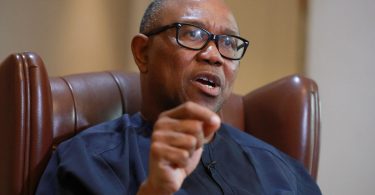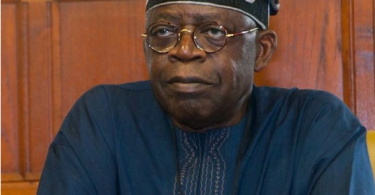The current state of insecurity in Nigeria has created fear and apprehension among its citizens. Roads and railways have become dangerous due to the activities of kidnappers and robbers, causing concerns for commuters. Farmers have abandoned their farms out of fear of bandits who engage in maiming and abducting them for ransom.
The security agencies are often overwhelmed and stretched thin, and there have been cases where law enforcement agents have lost their lives during attacks. In light of these challenges, former governor of Zamfara State, Ahmad Yerima, has suggested that the Federal Government should consider negotiating with bandits to address the security situation, drawing a parallel with the successful negotiations with Niger Delta militants in the past.
Yerima made this suggestion during a courtesy visit to the president and in discussions with State House reporters. He advised President Bola Tinubu that negotiation, rather than military action, would be the most effective approach to tackle the security issue and put an end to insurgency in the country. He cited the unsuccessful attempts of the previous administration to negotiate with bandits and highlighted the success of President Musa Yar’Adua’s negotiations with insurgents in the Niger Delta as a model for peaceful resolution.
Yerima emphasized that rising poverty and illiteracy in the region contribute to the escalation of banditry. He clarified that he is not advocating for bandits but believes that the Federal Government can use its resources and political will to initiate negotiations with repentant bandits. It is important to note that despite efforts from neighboring countries to curb the proliferation of banditry and terrorism, the politicization of the insurgency by the Nigerian government has allowed it to spread rapidly. Factors such as extreme poverty, illiteracy, and neglect of the youth in many northern states have created fertile ground for recruitment into criminal activities.
The rising violence in the country has had a significant economic impact, with Nigeria reportedly losing 11% of its GDP, equivalent to N119 billion, according to BusinessDay. Insecurity and other related issues have also resulted in the abandonment of projects worth N12 trillion across Nigeria, as reported by TownTalk solutions.
Furthermore, Nigeria ranked 146th out of 163 countries in the Institute for Economics and Peace’s 2021 Global Peace Index, with a score of 2.712. In the same index, Nigeria was ranked 39th out of 44 sub-Saharan African nations, highlighting the country’s challenges in maintaining peace and security. Analysts assert that insecurity negatively affects economic growth by discouraging investments, increasing unemployment, and reducing government revenue.
source: Leadership
Africa_Eagle (
)








